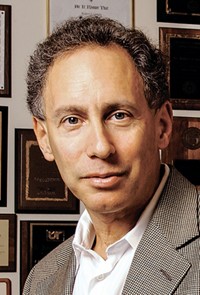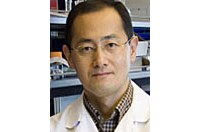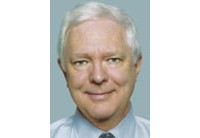Advertisement
Grab your lab coat. Let's get started
Welcome!
Welcome!
Create an account below to get 6 C&EN articles per month, receive newsletters and more - all free.
It seems this is your first time logging in online. Please enter the following information to continue.
As an ACS member you automatically get access to this site. All we need is few more details to create your reading experience.
Not you? Sign in with a different account.
Not you? Sign in with a different account.
ERROR 1
ERROR 1
ERROR 2
ERROR 2
ERROR 2
ERROR 2
ERROR 2
Password and Confirm password must match.
If you have an ACS member number, please enter it here so we can link this account to your membership. (optional)
ERROR 2
ACS values your privacy. By submitting your information, you are gaining access to C&EN and subscribing to our weekly newsletter. We use the information you provide to make your reading experience better, and we will never sell your data to third party members.
Biological Chemistry
Herzenberg Nabs Kyoto Prize
Award honors the developer of the fluorescence-activated cell sorter
by Sarah Everts
June 19, 2006
| A version of this story appeared in
Volume 84, Issue 25
Stanford University immunologist and geneticist Leonard A. Herzenberg, 74, has won the annual Kyoto Prize in Advanced Technology for developing the fluorescence-activated cell sorter (FACS). Kyoto Prize winners were announced on June 9. An official ceremony will be held on Nov. 10 in Kyoto, Japan.
The Kyoto Prize is Japan's equivalent to the Nobel Prize, and it is presented by the Inamori Foundation. The prize includes a gold medal and a cash gift of approximately $446,000.
"I'm obviously delighted," Herzenberg says of the honor. "I think it's a prize not just for me but for all my collaborators over the years."
FACS allows researchers to sort and count live cells without destroying them. Fluorescent labels are attached to specific proteins on the cell surface, allowing the cells to be separated from other cells in a mixture. For example, red-tagged cells are shunted into one test tube, green-tagged cells into another. A modern FACS can sort millions of cells per minute.
Herzenberg and his colleagues initially developed FACS to isolate and study the function of immune cells such as lymphocytes and T cells. The prototype, affectionately called "The Whizzer," was described in Science in 1969.
"FACS was a marvelous, 'homemade' instrument that has become, four decades later, essential equipment in many labs, analyzing cells of many kinds," says Alice L. Givan, director of the Englert Cell Analysis Laboratory at Dartmouth Medical School.
FACS has been used to study HIV and leukemia, to analyze plankton in the ocean, and to perform experiments on the space shuttle. "When FACS was developed, I had a feeling it would have widespread applications," Herzenberg says. "But not this widespread."
Other recipients of this year's Kyoto Prize are Japanese mathematician Hirotugu Akaike, for his contribution to statistics, and Japanese designer Issey Miyake, for his artistic use of new weaving technology.






Join the conversation
Contact the reporter
Submit a Letter to the Editor for publication
Engage with us on Twitter